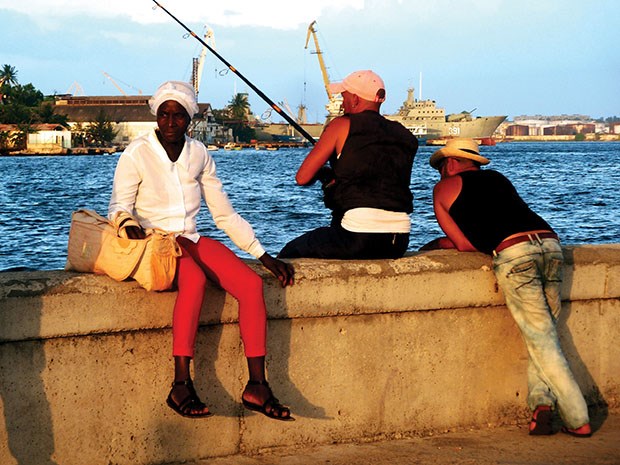In the English language, we have two different words for two separate concepts — wait or hope.
For instance, in Canada, I might sit in a hospital’s waiting room and think I am only counting the minutes: I am waiting (the odds are, that if I’m sitting in a hospital waiting room, I might be hoping as well, but that is considered a separate action).
In Cuba’s capital city of Havana, everything appears to be in a suspended state of waiting. There are limited supplies of anything, and everything else has been re-jigged, rewired and rebuilt. Mid-century cars that are more filler than metal continue to rumble down the streets. Bicycle taxis built from rebar and found parts bounce over potholed roads.
The apartments in central Havana remind me of those old black and white photos from after the Second World War; haunting images that showed bombed-out buildings, exposing intimate life details.
Havana shares that same tragic and tired air. Laundry hangs from broken balconies. Walls have fallen, revealing vulnerable lives that continue on without privacy or improvement. Ropes and bits of lumber are cobbled together to bolster crumbling walls.
Some reports mention that up to 300 buildings collapse each year. It is quickly apparent that without cash, nothing stays standing, and after the 1959 Revolution, and the subsequent U.S. embargo, the cash flow definitely came to an end.
Everything is in need of care and attention.
Yet somehow, in spite of hardship, thick heat and deprivations, the people of Havana carry on, making do with no clear way to get ahead.
But there are notable changes too.
In 1994, a new government organization was formed. The Habaguanex Tourist Company restores unique and historic hotels, driving the profits into the next restoration, whether it’s another hotel, plaza or more livable housing for the locals.
Habaguanex includes coffee shops, markets, restaurants and stores. Although most stores have limited merchandise (bar of Zest soap anyone?), all those profits too, are put back into rebuilding Old Havana.
Slowly, plazas are revitalized. Wisely, the restored buildings in the plazas don’t just include hotels, art galleries and restaurants but also schools and improved housing.
This ensures an energized centre with citizens and tourists sharing the same space.
With every traveler that spends time in La Habana, more cash is found for plaster and paint, bricks and mortar. As well, there are more private residences being approved for conversion to B&Bs (casa particulares) and working as family-owned restaurants (restaurant paladar).
Plaza Vieja is a shining example. There’s great coffee and people watching from the outdoor tables at Cafe El Escorial. Don’t be daunted by the line-ups. The locals are simply waiting to buy bags of freshly roasted coffee.
Grab one of the available tables, order a cafe con leche and take a front row seat to the transformation. The shiny metal woman-riding-the-rooster sculpture shares the space with school children doing their exercises, groups of tourists and guides, and hucksters offering cigars.
But more than anything else, throughout Havana, there is the music.
It fills the shadows and brightens the colours. It makes the heat sing and provides a sexy soundtrack to the beautiful people in this amazing city.
Like the shimmering humidity, the musica curves around courtyards, dancing up the narrow alleys, sharing brassy notes with both the broken and the restored.
Whether it’s in a cafe, coffee shop, restaurant or bar, there is music. Drums, strings, brass and the waterfall sounds of the castanets do their intricate dance with velvet and tobacco voices.
The music tells of another story. It sings of bigger things than money. It speaks of soul.
In Spanish, esperanza means “to wait.” It also translates “to hope” or “to expect.” Cuba is engaged in a very Spanish form of waiting; the kind of waiting that somehow, in spite of everything, is filled with hope.
Travel Writers’ Tales is an independent travel article syndicate that offers professionally written travel articles to newspaper editors and publishers. To check out more, visit www.travelwriterstales.com.



